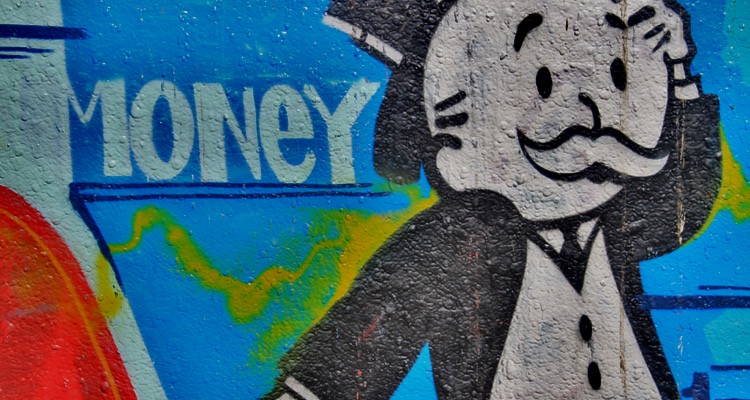
Money?
Listening to music is easier than it has ever been. Spotify, Apple Music, SoundCloud – just to name a few – are all ready to fill your ears with more music than you could ever listen to. As a user, you pay a fixed monthly fee for this easy access and the streaming service then passes that money on to the artist right? Well, not quite.
In theory, the artist receives a certain amount of money per play. Yet, with so many rights holders all claiming their share of the revenue generated – think music labels, producers, musicians, vocalists – figuring out who to pay and how much to pay them becomes a complicated task.
Today
Today, metadata which accompanies tracks, contains info such as who the right holders are but this data is often incomplete and takes just a couple of seconds to be stripped away. And wrong or even no metadata at all means that the artist doesn’t get paid for his work.
This is specifically a problem for smaller artists for who every bit of revenue can mean the difference between being able to pursue a career in music or having to find another source of income.
Blockchain as a problem solver
Blockchain has the potential to solve this problem. More specifically, the smart contract component of blockchain. Those smart contracts can include which percentage of the revenue goes to which member of the band, the label, the manager,… or even give a quick way of contacting all the involved rights holders for licensing queries.
By logging all the rights holders to a specific song on the blockchain you basically create one big, transparent database which can be viewed by anyone at any time. Artists receive their share immediately instead of months or even years later as is now the case.
Maybe even more powerful is what blockchain can do in terms of artist/fan interaction. Beginning artists can include a parameter in the smart contract which shares a percentage of the revenue generated with fans who shared their songs. Creating a powerful referral program.
Once the artist has reached a certain level of promotion, he can then just as easily dial down or end the revenue sharing. Fans can then spend the acquired tokens in that same ecosystem towards merch or concert tickets. Turning the fan into an active promoter.
Blockchain applications for music are in their early days and still have to prove themselves. To gain traction, it will take more than just the musicians to get on board. The biggest hurdle for the fans might be the relative unknown factor of blockchain.
Trying to bridge this gap between the technology and the users is Volareo. A company developing a smart speaker which aims to bridge the digital of music and blockchain with the physical presence of a voice controlled speaker. “Our goal is to aggregate these different blockchain based music services that are currently emerging. Think about blockchain music streaming services, blockchain ticketing or merch services. By building a smart voice enabled speaker we bridge that last mile of getting the music to the listener” says CEO and founder Nick Yap. “Blockchain music has a huge potential to drive hardly needed revenue to artists, especially to independent artists. Transparently, directly and instantly.”
There is no doubt blockchain can help artists to receive the compensation they deserve. The question remains though whether the music labels are ready to embrace blockchain or will they, just as with every other major innovation the the past 30 years, try everything in their power to stick to the old ways.
Want to shape the future of music with us? Talk to us:
Facebook group : http://bit.ly/VolFacebookGroup
Or subscribe to our newsletter at www.volareo.live

